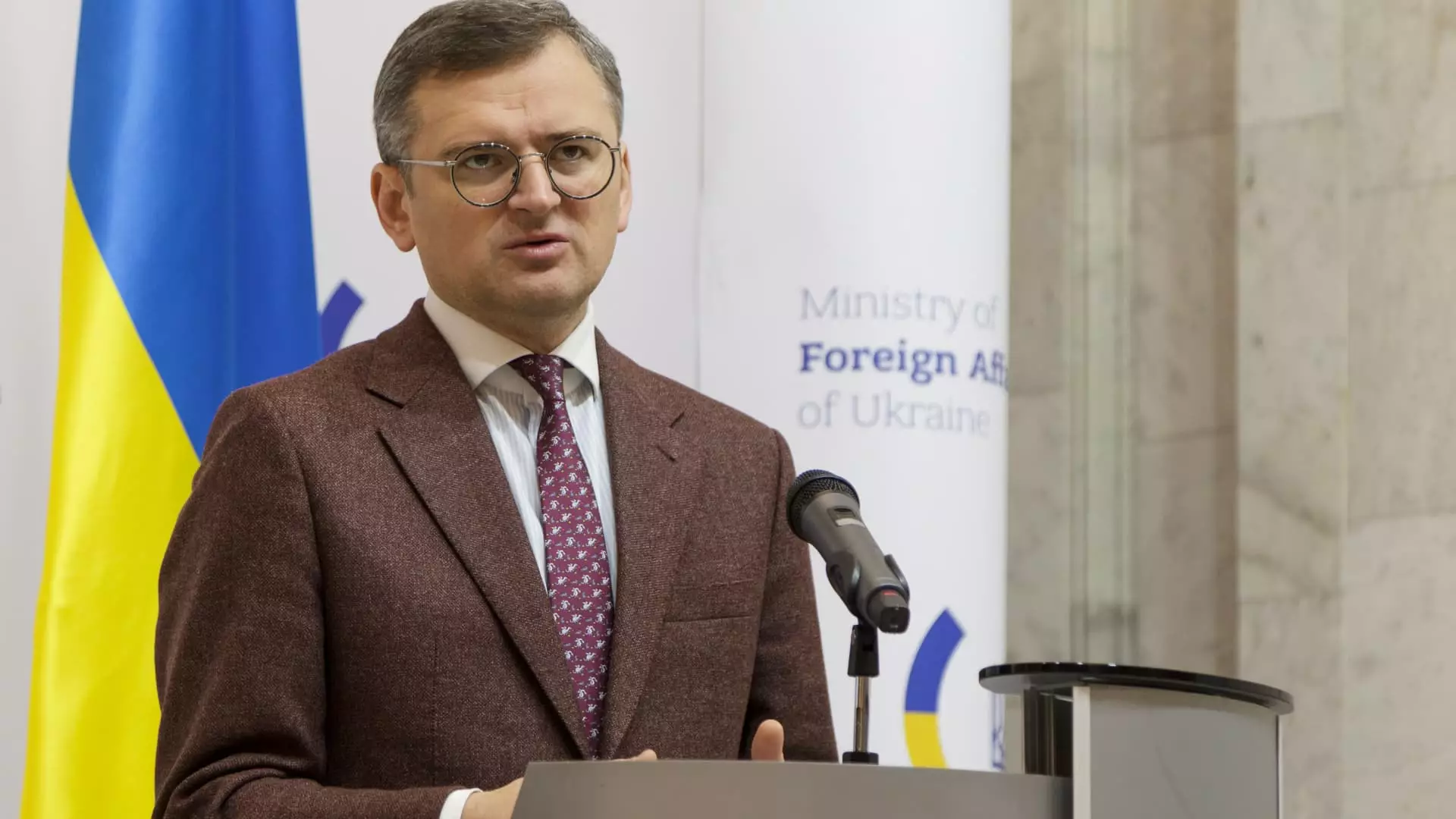Dmytro Kuleba, the former Ukrainian Foreign Minister, has delivered a stark warning about the implications of Ukraine’s ongoing conflict with Russia not just for his nation, but for the entirety of Europe. His assertion that “if Ukraine fails, war will come to the streets of European cities” encapsulates a deeply troubling possibility: the notion that the ramifications of this conflict extend far beyond Ukrainian borders. This perspective challenges European nations to reassess their strategies regarding security and diplomatic engagement with Russia, emphasizing the urgency of supporting Ukraine in its fight against aggression.
Kuleba’s remarks reflect comprehensive analysis grounded in the geopolitical context of the conflict. He argues that while Russian President Vladimir Putin may currently lack the capacity to simultaneously wage multiple wars, his focus on a singular conflict—should Ukraine falter—poses a genuine threat to European stability. The analysis draws a parallel to the recent downfall of support for Bashar al-Assad in Syria, positioning Ukraine as a litmus test for Russian ambition in Europe. If Ukraine succumbs, Kuleba posits that Europe may very well be next in Putin’s strategic plans, leading to a broader and more devastating crisis.
The question of Ukraine’s accession to NATO remains a contentious issue among member states, often rooted in historical tensions and apprehensions regarding Russian retaliation. Kuleba argues that while discussions about security guarantees can temporarily appease concerns, they will not constitute an enduring solution. He insists that NATO membership is essential to curbing future conflicts, proposing that any pause in discussions about Ukraine’s membership, though potentially beneficial in the short term, risks enabling a second Russo-Ukrainian war.
Kuleba’s analysis highlights the precarious nature of peace negotiations and the importance of solidifying Ukraine’s position within NATO as a deterrent against Russian aggression. The former minister believes that only through a cohesive and unified approach by NATO leaders can Ukraine secure the necessary assurances that will deter future invasions. This perspective reflects an increasing urgency among several member nations to grapple with defining their alliances in the context of the present conflict.
As the political landscape in the U.S. shifts with the return of Donald Trump, whose foreign policy views may significantly diverge from his predecessors, Kuleba indicates a cautious optimism regarding renewed discussions between Trump and Ukrainian President Volodymyr Zelenskyy. The potential for an immediate ceasefire, as Trump suggested, raises questions about the feasibility of lasting peace solutions. However, Kuleba remains grounded in the belief that any resolution must address the core issue of Russia’s willingness to engage in good-faith negotiations.
Kuleba poignantly suggests that the key to a sustainable peace lies in changing Moscow’s approach, viewing it as imperative for U.S. leadership to navigate this complex terrain skillfully. He also emphasizes Ukraine’s unwavering stance against territorial concessions, underlining a constitutional commitment that binds leaders from ceding land due to conflict—a sentiment that resonates deeply within the national consciousness.
As hostilities continue, with events like Russia’s recent severe assaults on Ukraine’s energy infrastructure serving as grim reminders of the situation’s volatility, Kuleba’s remarks resonate with urgency. While efforts to moderate the conflict through foreign intervention and negotiations are crucial, they must be balanced against the immediate realities on the battlefield. Kuleba’s assertion that Ukraine “cannot sit on its hands” amid escalating aggression encapsulates a determination that many within the nation share in the face of Russian provocations.
The stark disparity in military capabilities and strategic aims between the two nations suggests that any sustained response requires careful consideration of international support and military readiness. Kuleba’s insistence on proactive measures to counter Russian advances underscores the necessity for Ukraine and its allies to adopt a robust stance that prioritizes national sovereignty and regional stability.
The fight for Ukraine is not merely a national struggle; it is a critical moment for European and global security. The implications of this conflict will likely mold the future geopolitical landscape, demanding firm resolve and collaborative efforts among nations committed to defending democratic values and protecting territorial integrity against authoritarian ambitions.


Leave a Reply